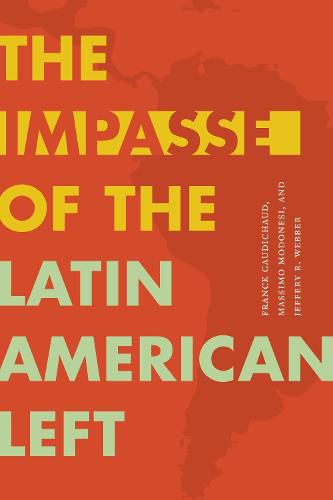Readings Newsletter
Become a Readings Member to make your shopping experience even easier.
Sign in or sign up for free!
You’re not far away from qualifying for FREE standard shipping within Australia
You’ve qualified for FREE standard shipping within Australia
The cart is loading…






In The Impasse of the Latin American Left, Franck Gaudichaud, Massimo Modonesi, and Jeffery R. Webber explore the region’s Pink Tide as a political, economic, and cultural phenomenon. At the turn of the twenty-first century, Latin American politics experienced an upsurge in progressive movements, as popular uprisings for land and autonomy led to the election of left and center-left governments across Latin America. These progressive parties institutionalized social movements and established forms of state capitalism that sought to redistribute resources and challenge neoliberalism. Yet, as the authors demonstrate, these governments failed to transform the underlying class structures of their societies or challenge the imperial strategies of the United States and China. Now, as the Pink Tide has largely receded, the authors offer a portrait of this watershed period in Latin American history in order to evaluate the successes and failures of the left and to offer a clear-eyed account of the conditions that allowed for a right-wing resurgence.
$9.00 standard shipping within Australia
FREE standard shipping within Australia for orders over $100.00
Express & International shipping calculated at checkout
In The Impasse of the Latin American Left, Franck Gaudichaud, Massimo Modonesi, and Jeffery R. Webber explore the region’s Pink Tide as a political, economic, and cultural phenomenon. At the turn of the twenty-first century, Latin American politics experienced an upsurge in progressive movements, as popular uprisings for land and autonomy led to the election of left and center-left governments across Latin America. These progressive parties institutionalized social movements and established forms of state capitalism that sought to redistribute resources and challenge neoliberalism. Yet, as the authors demonstrate, these governments failed to transform the underlying class structures of their societies or challenge the imperial strategies of the United States and China. Now, as the Pink Tide has largely receded, the authors offer a portrait of this watershed period in Latin American history in order to evaluate the successes and failures of the left and to offer a clear-eyed account of the conditions that allowed for a right-wing resurgence.